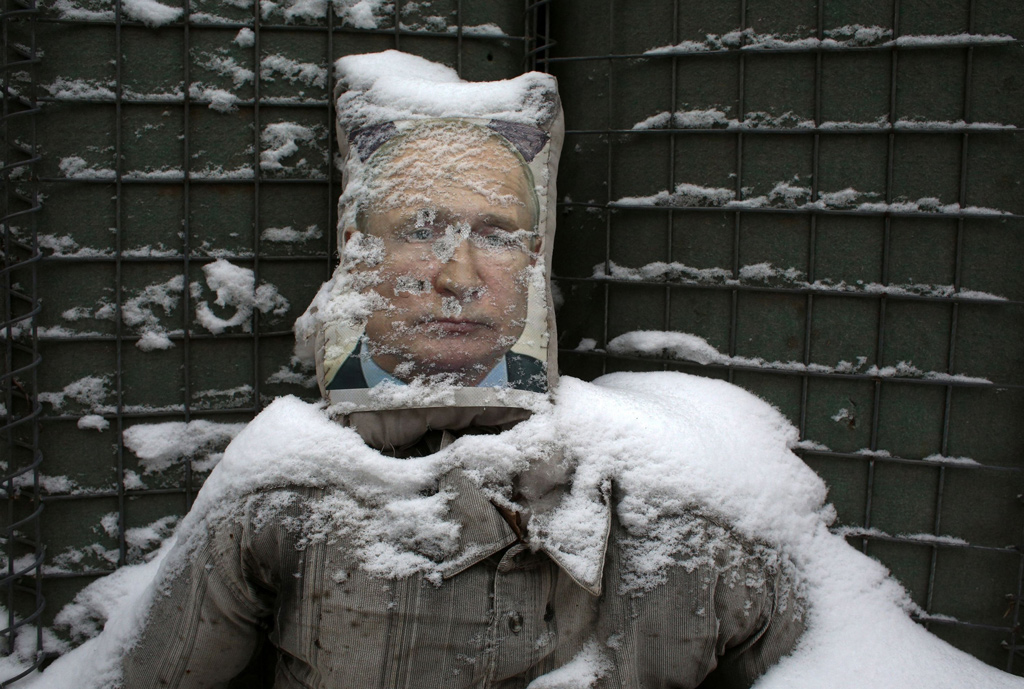The United States and NATO made no concessions in the Ukraine crisis. Washington stood by NATO’s open door policy to reject a Russian demand to bar its neighbor from the organization. It remains unclear what “diplomatic solution” the Americans have offered Moscow in their undisclosed response and how Russia will react. Dmitry Peskov, the Kremlin’s spokesperson, said that the U.S. response did not take into consideration Russia’s fundamental security concerns, whilst noting that the dialogue would continue. The Kremlin has no problem drawing parallels between the current situation and Cold War tensions between Russia and the West either.
Once again, the ball is in Russian President Vladimir Putin’s court. Will his government de-escalate, as it did in the spring of 2021, or take the tensions to the next level with the help of Donbass separatists? Or will Russia back up
its earlier threat to send troops to Cuba and Venezuela with concrete action, opting for considerable, long-term tensions akin to the Cold War period?
Amid contacts between the United States, NATO and Russia, Peskov announced that
Putin had accepted President Recep Tayyip Erdoğan’s invitation and was going to visit Turkey, depending on the coronavirus pandemic, and when his schedule permits. Undoubtedly, the Russian leader’s upcoming visit will involve discussions on many different bilateral and regional issues, from energy and defense to the situation in Syria.
Keeping in mind that
Erdoğan will visit Ukraine next week and his earlier plan to facilitate a meeting between the Russian and Ukrainian presidents, one cannot help but wonder whether Turkey intends to step in.
In the eyes of Putin
It is no secret that Putin sees the Ukraine crisis as part of a grand bargain with the U.S. and NATO. If he considers it more beneficial to sustain the current tensions, the Russian president would probably prefer to discuss Ukraine with Erdoğan behind closed doors. Putin could agree to meet Volodymyr Zelenskyy, his Ukrainian counterpart, in Turkey, depending on the progress made in diplomatic talks with the U.S., as well.
From the perspective of crisis management, the Russian leader seemed to have the upper hand at first. However, it was simply impossible for the U.S. and Europe to meet Moscow’s maximalist demands. Indeed, U.S. President Joe Biden's administration knows that the current crisis puts to test America’s claim to global leadership. Although Germany adopted a more moderate position due to its dependence on Russian natural gas, the Western alliance does not favor appeasement. As such, they threaten Moscow with severe economic sanctions and, at the same time, deliver weapons to Ukraine. As time passes, NATO becomes more internally consolidated as well. Ukraine, too, insists on resisting the occupation. At the same time, the Baltic states and Eastern European nations have grown more wary of “the Russian threat.”
Erdoğan's position
Already backing the Donbass separatists, Russia needs to calculate skillfully what it can accomplish by carrying out “minor incursions” and at what cost. That is what Erdoğan has been telling his Russian counterpart, too: “I hope that Russia won’t opt for an armed attack against Ukraine and occupation. After all, such a step would not be wise for Russia or the region. It appears that there is a need for a meaningful dialogue intended to hear Russia out and address its legitimate security concerns, if any. We must also explain to Russia why some of its demands are unacceptable. I believe that such dialogue would allow Russia to understand NATO better.”
Erdoğan’s leader-to-leader diplomacy aims to address Russian security concerns and to demonstrate the unacceptability of its demands. Hoping that NATO’s initiative pays off, the Turkish president clarified his country’s position regarding the Ukraine crisis in
a televised interview: "Turkey will continue to live up to its responsibilities as a NATO member in the future, as it has in the past."
Some folks seem to think that Turkey, a NATO ally, maintaining cordial relations with both Russia and Ukraine could create “a serious risk” amid the crisis. I beg to differ. In my opinion, the future course of the Ukraine crisis could add to the importance of Turkey’s diplomatic efforts very soon. Erdoğan’s upcoming trip to Ukraine, coupled with Putin’s visit to Turkey, must be viewed within that framework.
[Daily Sabah, January 29, 2022]








